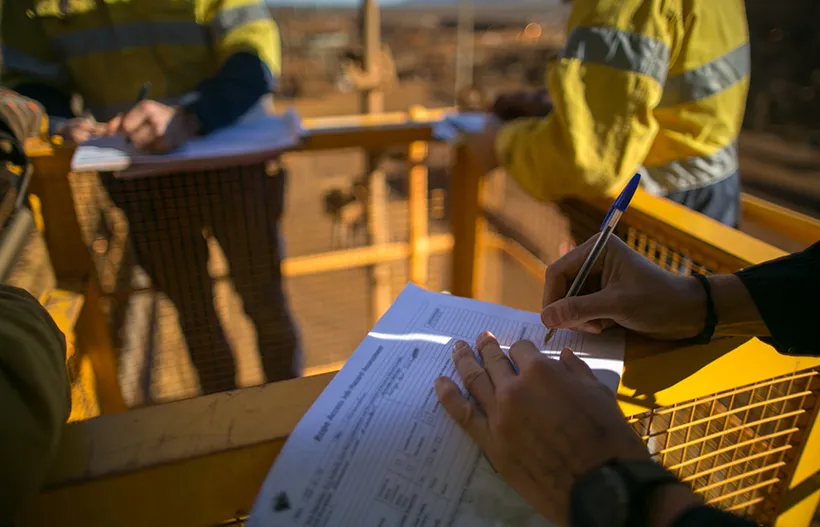Responsible business benefits both the exporter and the buyer – “Responsible enterprises are more resilient to external blows”

Responsibility is a permanent paradigm shift, not only a trend. It is part of business and creates a competitive advantage on the market for enterprises that show that corporate responsibility is a genuine part of their operations, not just individual campaigns. Corporate responsibility is also a form of risk management and benefits export companies in the long run. Acting responsibly makes enterprises more resilient in crises like the coronavirus pandemic.
There are many dimensions in corporate responsibility, showed the discussion on responsible business in the Team Finland day event on 27 August 2020. For enterprises, it means looking after the personnel, knowing your supply chain, and ensuring financial resilience, for instance. Legislation sets the minimum baseline. A competitive advantage is created by how enterprises live in interaction with the surrounding communities and how well they react to the wishes of their stakeholders and to the requirements of the operating environment. The competitive advantage can be seen in investor interest, talent recruitment, and deals won, among other things.
Corporate responsibility also entails buyer assessment. An export company must know to whom they are selling their product. Nowadays, this can be seen in the increasing number of KYC (know your customer) analyses but in the long run, even knowing your buyer can turn into a competitive advantage.
“Winning deals is more likely in the future, too, if the buyer’s operations are environmentally and socially sustainable. That means that its finances are on a more solid foundation over a longer term, and its ability to buy Finnish products also later on is better,” says Lauri Etelämäki, Environmental Adviser at Finnvera.
Focusing on risks through questions
Finnvera’s environmental and social risk management policy was updated at the beginning of 2020. The most visible change is the aim to analyse and manage serious human rights risks also in minor export projects. Previously, Finnvera concentrated on long-term projects with a high EUR value. The change requires the development of new means of risk management.
“The management of human rights risks in minor trade transactions is demanding due to the fast pace of business and the small transaction value, which often means that Finnvera’s and the seller’s ability to influence the buyer’s actions is small. Finnvera’s goal is to involve exporters and their clients in risk management gradually.”
“For instance, when export companies interact with their clients, they can express their interest in the client’s corporate responsibility by asking questions about workers’ rights and working conditions as well as occupational safety and its management. We gladly provide enterprises with advice and support for managing human rights risks. In this manner, we also get the buyer to pay attention to these things,” says Etelämäki.
It is Finnvera’s task to promote the export trade of Finnish enterprises by means of financing. Finnvera shares financing-related risk with other providers of financing. According to its strategy, Finnvera, and the transactions it finances, are responsible with regard to the environment and people. The aim is to assess environmental and social risks in all export credit guarantee applications. The extent of the assessment depends on the value of the transaction, the size of the buyer’s project, and the financing product that the exporter is applying for.
The practical implementation of the new environmental and social risk management policy is a project for this and next year. Thus far, the export companies with which the new policy has been implemented in practice have had a positive attitude towards it.
“Everyone is interested and aware of the importance of this topic.”
The world is changing, responsible enterprises prevail
Responsibility is a permanent paradigm shift, not only a trend, summarised Lenita Toivakka, Global Compact Finland’s Executive Director, in her speech about responsibility in the Team Finland day event. Global Compact, operating under the UN, promotes the UN’s Sustainable Development Goals and international cooperation between enterprises.
“The world is living in uncertainty, and enterprises play an increasingly important role in solving global challenges,” says Toivakka.
Corporate responsibility is profitable from the business perspective, helps enterprises identify risks, and creates business opportunities and cost savings. The coronavirus crisis does not push corporate responsibility goals to a later date, Toivakka emphasises. On the contrary:
“Corporate responsibility is a prerequisite for future success. Responsible enterprises are more resilient to external blows.”
Also according to Finnvera’s Lauri Etelämäki, the thorough management of risks and negative impacts caused by industrial operations for people and the environment becomes increasingly important every day along with the world’s population growth. The organisations that take this into account early enough are in a better position than those whose operations are not sustainable.
“Often, it is a question of fairly minor things that have great practical significance.”
More information on this topic:
